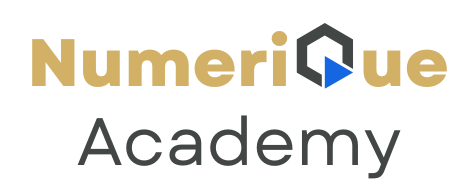In recent times, there has been a great advancement in Artificial Intelligence (AI) tools. This has triggered anxiety as well as excitement among the global workforce. While these tools offer unmatched efficiency and innovation, they also raise a pressing question: Are AI tools replacing jobs or creating new ones?
The answer, as with most technological shifts, is not black and white. Let’s take a balanced look at how AI is reshaping the job landscape—and what it means for you.
AI is Automating Certain Jobs—That’s a Fact
There’s no denying that AI is taking over repetitive and routine tasks. From customer service chatbots to data entry tools, businesses are increasingly using AI to improve speed, reduce human error, and cut costs.
Examples of jobs impacted:
- Customer support: AI chatbots can handle FAQs 24/7.
- Data entry clerks: Automation tools can input, sort, and analyze data faster than humans.
- Transcriptionists: AI transcription software like Otter.ai or Descript can convert speech to text with high accuracy.
- Basic content creation: AI writers can now generate blogs, emails, and social media posts with minimal human input.
This shift means that some traditional roles are becoming less relevant or evolving—especially those based on routine, predictable tasks.
But AI is Also Creating Entirely New Roles
While some jobs fade, new ones are being born. Think back to the Industrial Revolution: machines replaced certain labor roles, but also created whole new industries. AI is doing the same.
New and emerging AI-related jobs:
- AI Prompt Engineers: Specialists who craft precise prompts to get optimal output from AI tools.
- AI Trainers/Data Labelers: People who help train AI models by feeding and tagging relevant data.
- Ethics & Policy Experts: Professionals who guide the responsible and ethical use of AI in business and government.
- Automation Specialists: Experts who integrate AI into existing systems to streamline workflows.
- AI Product Managers: Roles focused on building AI-powered products that solve real-world problems.
Even creative roles are evolving. Graphic designers, for example, now use tools like Midjourney or DALL·E to generate visual concepts faster, giving them more time for refinement and strategy.
The Shift is Toward Human-AI Collaboration
The most successful professionals won’t be the ones who resist AI—but those who learn to work with it.
Think of AI as a co-pilot, not a replacement.
- Writers use AI to brainstorm and edit faster.
- Marketers use it to analyze customer behavior and predict trends.
- Developers use AI code generators (like GitHub Copilot) to speed up programming.
- Educators use AI to personalize learning plans.
Instead of replacing your skill set, AI can amplify it—if you’re willing to adapt.
Skills You’ll Need in an AI-Driven World
To stay competitive, you’ll need to build complementary skills that AI can’t easily replicate.
Top future-proof skills:
- Critical thinking and problem-solving
- Emotional intelligence and communication
- Creative strategy and innovation
- AI literacy (understanding how AI works and how to use it)
- Adaptability and continuous learning
The good news? You don’t need to become a coder to survive the AI wave. You just need to be open to upskilling and reframing your role.
So, What’s the Verdict?
AI is both replacing and creating jobs. The difference lies in how individuals and organizations respond.
- If you resist change, you may find your role becoming obsolete.
- If you embrace AI as a tool to enhance your work, you’ll stay ahead of the curve.
The future belongs to those who understand the power of AI—not as a threat, but as a partner in progress.
Conclusion: AI isn’t the end of human work—it’s the beginning of a new era. Rather than fear job loss, focus on learning how to leverage AI to do more, do it faster, and do it better.
Pro tip: Start experimenting with AI tools today. Even basic familiarity will give you an edge in tomorrow’s job market.

